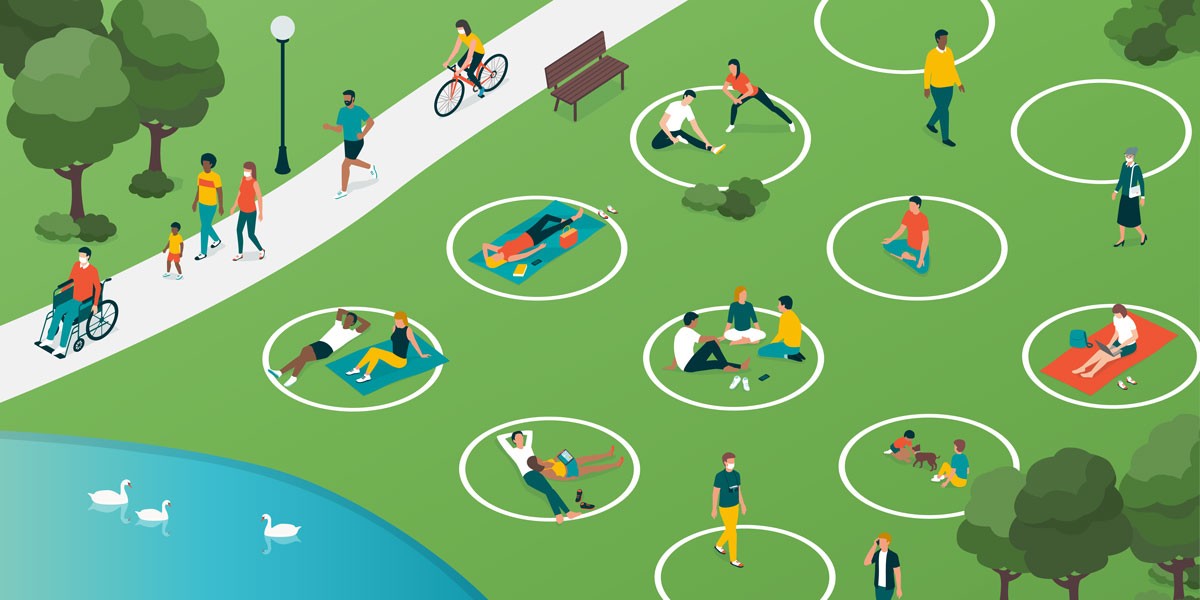- Keep your distance from people outside your household
It is important to be aware that the risk of infection increases the closer you are to another person with the virus, and the amount of time you spend in close contact with them. Therefore, you are unlikely to be infected if you walk past another person in the street.
- Avoid being face-to-face with people if they are outside your household or support bubble
You are at higher risk of being directly exposed to infection, when you are within two metres of someone and have face-to-face contact with them.
- Keep your hands and face as clean as possible
Wash your hands often using soap and water, and dry them thoroughly.Where available, use sanitiser outside your home, especially as you enter a building and after you have had contact with surfaces. Avoid touching your face.
- Keep indoor places well ventilated
Evidence suggests that the virus is less likely to be passed on outdoors and in well-ventilated buildings. In good weather, try to leave windows and doors open in areas where people from different households come into contact, or move activity outdoors if you can.
- Avoid crowded spaces
Reduce the number of people you come into close contact with. Avoid peak travel times on public transport, where possible and avoid densely crowded areas. Small groups in small spaces pose a risk as well as large, close crowds.
- Work from home if you can
If you can do your job from home you should continue to do so.
- If you have to travel (for example, to work or school), think about how and when you travel
To reduce demand on the public transport network, you should walk or cycle wherever possible. If you have to use public transport, you should try to avoid peak times.
- Face coverings
You must wear a face covering at all times on public transport or when attending a hospital as a visitor or outpatient. Hospitals will be able to provide a face covering in emergencies. If you can, you should also wear a face covering in other enclosed public spaces where social distancing isn’t possible and where you will come into contact with people you do not normally meet.
- Avoid shouting or singing close to people outside your household or support bubble
There is some evidence to suggest that shouting and singing increase the risk of infection
- Reduce the number of people you spend time with in a work setting
You can lower the risks of transmission in the workplace by reducing the number of people you come into contact with regularly, where you can.
- Wash your clothes regularly
There is some evidence that the virus can stay on fabrics for a few days, although usually it is shorter. Therefore, if you are working with people outside your household, wash your clothes regularly.
- When at work or in business or public premises, follow the advice on site
Evidence suggests that the virus can exist for up to 72 hours on surfaces. Therefore, frequent cleaning is particularly important for communal surfaces like:
- door handles
- lift buttons
- communal areas like bathrooms
- kitchens
- tea points
- Using Public Toilets
If travelling far from home, ensure that you know where there are public toilets open. And check that these are being properly maintained and cleaned frequently.

